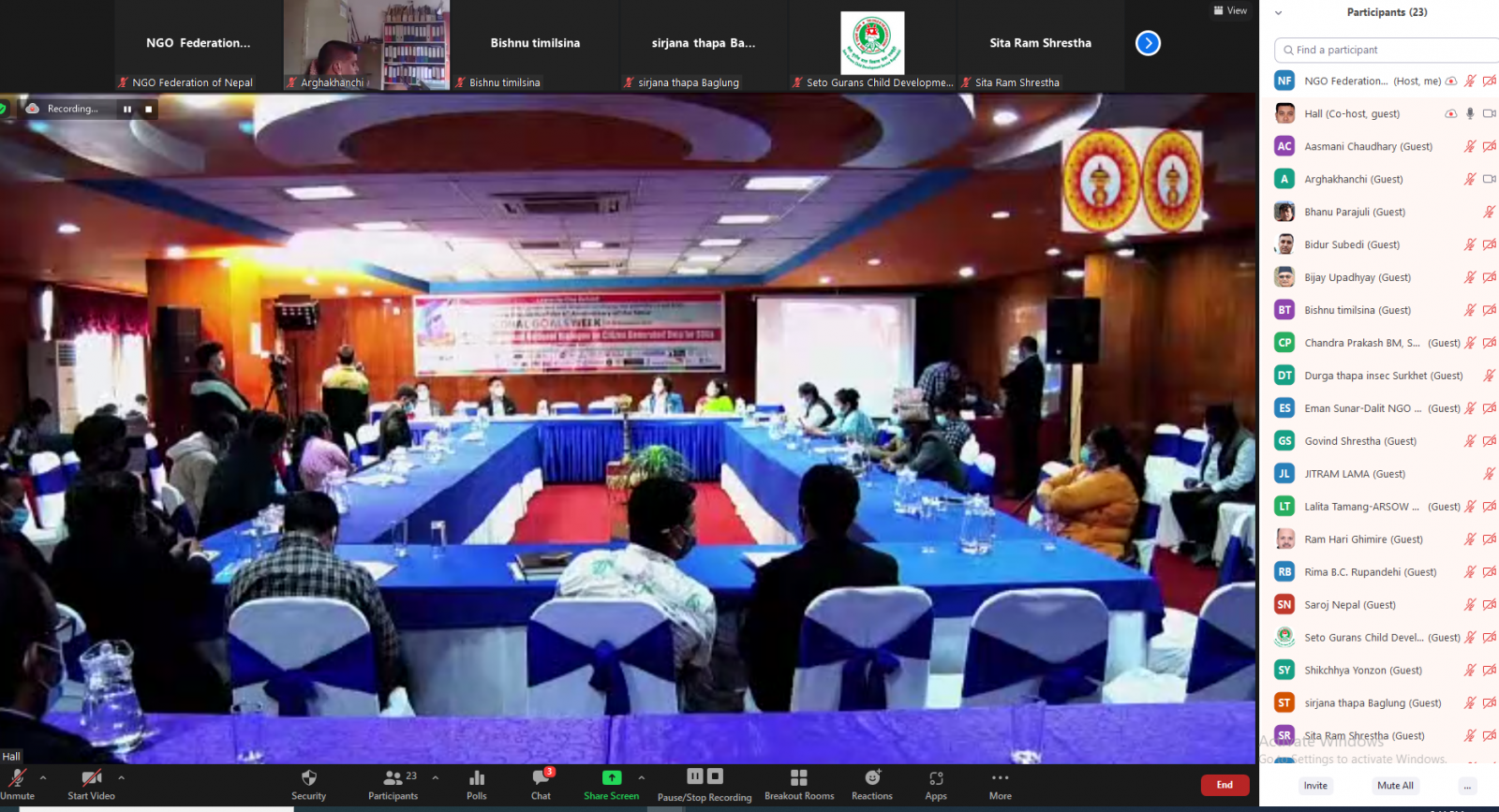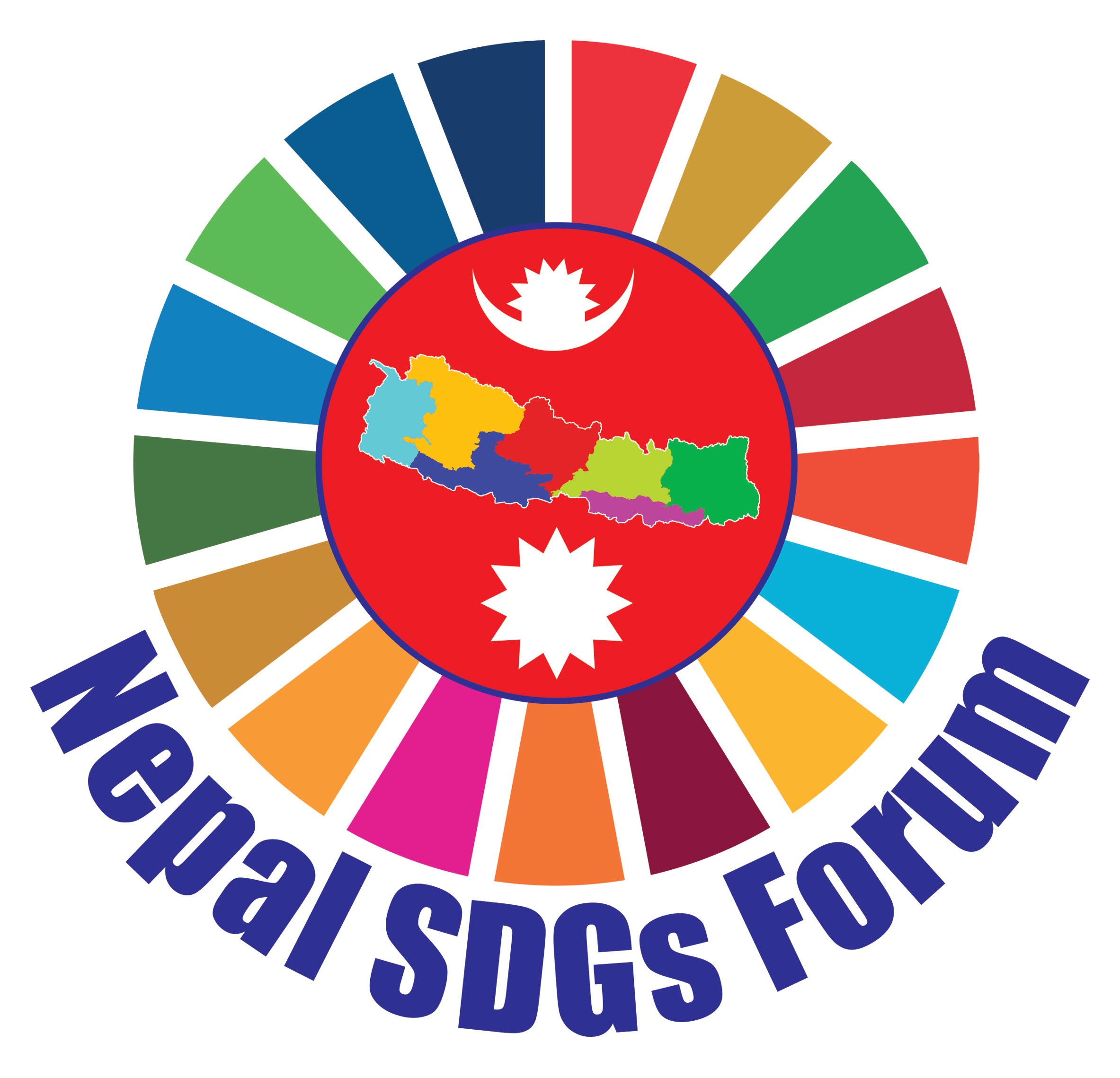Sustainable Development Goals action week started in Nepal
Sustainable Development Goals action week started in Nepal
KATHMANDU: The Sustainable Development Goals action week celebration has started in Nepal from Friday, 17th September 2021. NGO Federation of Nepal coordinated for the sdg action week grand opening ceremony and rational consultation on citizen generated data in Kathmandu.
Nepal SDGs Forum in collaboration with National Planning Commission (NPC), United Nations Organizations, Social Welfare Council (SWC), Federation of Nepalese Chamber of Commerce and Industries (FNCCI), National Cooperative Federation of Nepal, Municipalities Association of Nepal, National Association of Rural Municipalities, Federation of Nepali Journalists, Association of International NGOs in Nepal (AIN) jointly organized the event.
An event on 'Discussion on Citizen Data Generated' was organized to mark the 6th anniversary of 2030 Agenda for SDGs.

Speakers at the event emphasized collaborative effort among the government, development partners, private sector, CSOs, and other stakeholders the community to achieve SDGs. Similarly, they also stressed the need to effectively share and communicate ideas, insights, and outcomes of different discussions, debates, and reports.
Speakers also said that the central, federal, and local governments should initiate policies and programs to promote female leadership and ensure the participation of Dalits and other marginalized groups.
Various participating organizations highlighted their progress and work plans at the event. Saloni Singh, Member of of the National Planning Commission said that the government and its agencies are committed to achieving SDGs. She also said that NPC is closely working and coordinating with the private sector and other development stakeholders.
Dharma Swarnakar, a policy analyst at UNDP discussed on different achievements of UNDP in Nepal and informed that Nepal has made good progress in the education, health, and employment sector.
On the occasion, Bipul Pokharel, president of the Federation of Nepalese Journalists (FNJ) said that the right to information and the role of media is crucial in achieving SDGs.
Min Bahadur Shahi, Chairperson of Human Rights Alliance, informed that though Covid-19 has affected development activities in Nepal, Nepal has made outstanding achievements in terms of SDGs while comparing with the least developed countries.
Dr. Padma Prasad Khatiwada, Vice Chair Person of Social Welfare Council, emphasized the importance of SDG indicators and the possibility of acceleration if co-ordination between government and various organizations is done. He further added the role of civil society organizations and federations maintaining and alerting statistical representation of issues.
Bhakta B.K, National Acting President of Dalit NGO Federation, explained the impact of COVID-19 in achieving SDGs goals and difficulties that are obstructing the progress. He expressed his concerns on LEAVE NO ONE BEHIND and it's efficiency in social and economic justice and participations.
Gokarna Awasthi, Director of FNCCI focused on necessity of investment on projects and programs to achieve SDGs. "Capital is required to achieve goals in every sector, He added " The government, private sector and other stakeholders should assure required investment capital to cope challenges of achieving SDGs."
During the event Suran Maharjan, Program Manager from VSO highlighted the importance of Citizen Generated Data in Sustainable Development Goals. He informed the participants about CGD and its credibility through his presentation. Citizen generated data is data that people or their organizations produce to directly monitor, demand or drive change on issues that affect them. It is actively given by citizens, providing direct representations of their perspectives and an alternative to datasets collected by governments or international institutions. It is generated in a number of ways, including surveys, SMS (short message service text via mobile phones), phone calls, emails, reports, storytelling, sensors and social media.
It can be quantitative or qualitative, structured or unstructured, and open or closed. It comes in a number of formats, ranging from numerical data in spreadsheets to text, audio or photos. Typically, citizen generated data is collected through a specific initiative that aims to have a positive social impact.
This tool is for all stakeholders interested in ensuring effective monitoring and accountability for the SDGs, especially at the national and subnational levels, but also internationally. In particular, however, it will be useful for government representatives involved in the development of national SDG implementation and follow up and review processes, including national statistical authorities (NSOs) and others with a specific mandate around the use of data and technology for decision making. This tool aims to improve the understanding and appreciation of the value of citizen generated data amongst these actors. And by providing them with concrete examples of how it is already being used in practice to track progress on SDG related issues, along with a number of recommendations about how to foster a collaborative approach between governments and those producing this data, it also hopes to stimulate government decisions and policies which actively support an inclusive, multifarious yet joined up approach to SDG monitoring and accountability.
Due to the scenario of COVID 19,the program was organized in a hybrid mode. More than 25 people participated from the zoom whereas 55 people participated in the event physically using all the precautions and maintaining social distance. Jitram Lama, President of NFN concluded the event thanking all the participants, CSO activists, conveners, government, and other stakeholders.
